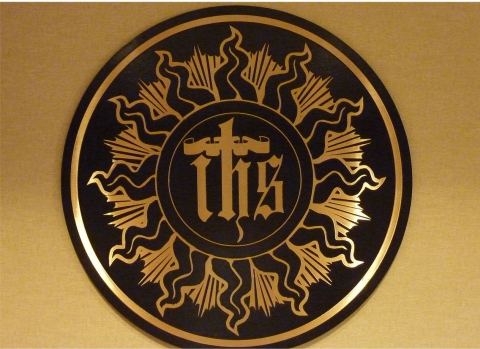
Recently, I read an article by Dr. Paul Copan entitled, “Jesus-Shaped Cultures.”1 In that article, he makes the case for how faithful Christians have transformed the societies they have served. For example, he discusses the Ethiopian famine that took place in 1984 and 1985. Brian Stewart, a CBC journalist, noted that it was Christians who were on the front lines of the famine, giving aid to the suffering. Their service was such a powerful witness to him that it started him on his journey to becoming a Christian himself.
While Copan’s article is interesting, it led me to a book that I thought was even more interesting. It is entitled Jesus in Beijing: How Christianity Is Transforming China And Changing the Global Balance of Power, and it is written by David Aikman, who served as a journalist for Time Magazine from 1971 to 1994. In his role as a Time correspondent, he visited China several times and even lived in China for two years as Time’s bureau chief. He returned to China in 2002 to gather the information he needed to complete his book.
He begins the book in a dramatic way. It is worth quoting at length:2
The eighteen American tourists visiting China weren’t expecting much from the evening’s lecture. They were already exhausted from a day of touring in Beijing. But what the speaker had to say astonished them.
“One of the things we were asked to look into was what accounted for the success, in fact, the pre-eminence of the West all over the world,” he said. “We studied everything we could from the historical, political, economic, and cultural perspective. At first, we thought it was because you had more powerful guns than we had. Then we thought it was because you had the best political system. Next, we focused on your economic system. But in the past twenty years, we have realized that the heart of your culture is your religion: Christianity. That is why the West has been so powerful. The Christian moral foundation of social and cultural life was what made possible the emergence of capitalism and then the successful transition to democratic politics. We don’t have any doubt about this.”
This was not coming from some ultra-conservative think tank in Orange County, California or from Jerry Falwell’s Liberty University in Lynchburg, Virginia. This was a scholar from China’s premier academic research institute, the Chinese Academy of Social Sciences (CASS) in Beijing in 2002. (emphasis mine)
In his book, Aikman suggests that Christianity will transform China to the point where it won’t even be communist anymore. He suggests that in the next thirty years, nearly one-third of China could be Christian, making it one of the largest Christian nations in the world and a strong ally of the U.S.
I have no idea whether or not that will happen, but I can say this: It is very sad that most Western scholars refuse to even consider the conclusions of the Chinese scholar quoted above.
REFERENCES
1. Paul Copan, “Jesus-Shaped Cultures: How Faithful Christians Have Transformed Societies, Christian Research Journal 37(04):43-47, 2014
Return to Text
2. David Aikman, Jesus in Beijing: How Christianity Is Transforming China And Changing the Global Balance of Power, pp. 5-6
Return to Text

Does Aikman make any suggestions that Chinese Christians will have more children than non-Christian Chinese? Unless things change, China, like other countries with low birth rates, is headed for the same demographic meltdown that Japan is currently experiencing. Here is a good Forbes article for an overview on Japan’s problem: http://www.forbes.com/sites/stephenharner/2014/09/15/japans-demographic-collapse-and-its-peace-constitution/. Here is one on China’s: http://www.forbes.com/sites/gordonchang/2013/11/17/chinas-one-child-change-doesnt-avert-demographic-collapse/
I don’t see how China can become truly become majority Christian unless young families there radically commit to rejecting China’s repressive family planning policies and become open to life. With marriage on the decline in Asia in general (see here http://www.economist.com/node/21526329/), young Christians in China are going to have to be very countercultural in order to make any demographic impact.
Maybe they will, but unless they reject a contraceptive mentality, I don’t see how that’s gong to happen (here is an excellent article by a Protestant on the concept of “contraceptive mentality”: http://politicsofthecrossresurrected.blogspot.com/2009/06/what-is-contraceptive-mentality.html)
S.M., Aikman thinks there will be a wave of conversions. He isn’t counting on biological reproduction.
I guess technically China could become majority Christian in thirty years if the conversions happen among the older population, since that cohort will be rapidly approaching the majority of the population. I just don’t see how they’re going to pass it on to the following generation, given the current cultural and marriage trends.
Also, I don’t share Aikman’s optimism about China becoming America’s ally even if they do become majority Christian. World War I was largely between “Christian” nations, and the history of Christendom does not support the concept of a Pax Christiana.
Secondly, I’m not sure any truly Christian nation would recognize America as “Christian” now and desire to be allied with us, given the decadence of our entertainment culture and our government’s desire and efforts to export same-sex marriage and abortion on demand.
Aikman’s book is as a western journalist considering the input from the people of China. It is a wonderful insight. Your readers might also like to read a similar take on cultural development written by a national of India. He is a little preachy, but it is from his great enthusiasm for the topic. Read “Truth and Transformation” by Vishal Mangalwadi.
This would appear to validate Aikman’s conclusions:
“Chinese Christians now outnumber Chinese Communists”
http://www.catholicculture.org/news/headlines/index.cfm?storyid=23332
Interesting link, S.M. Thanks for posting it.